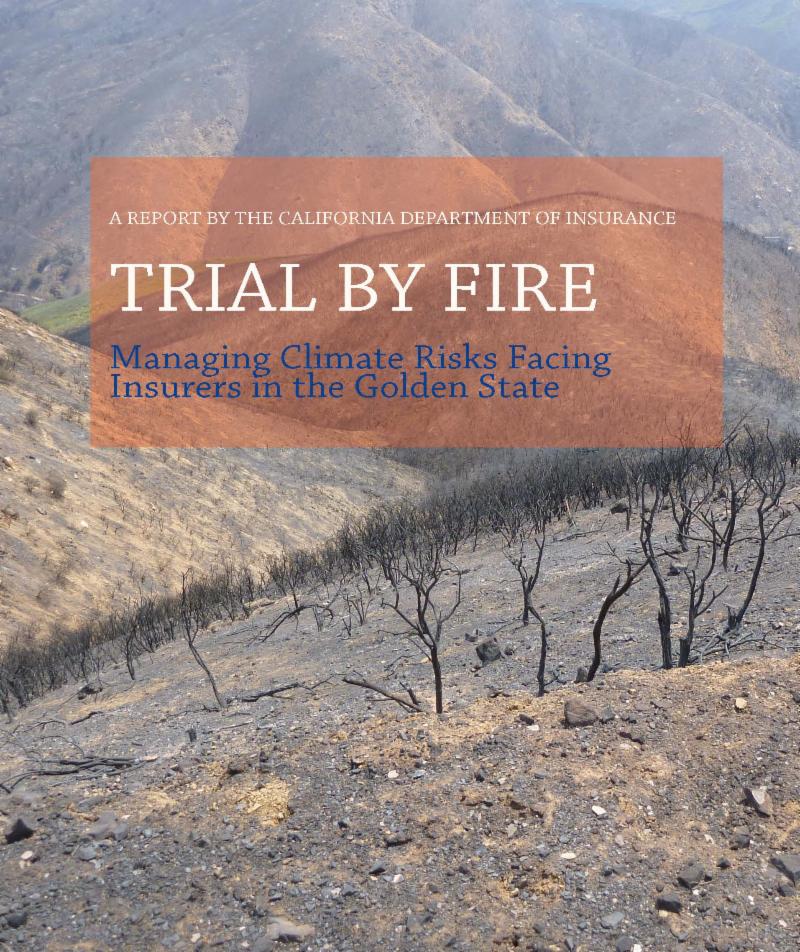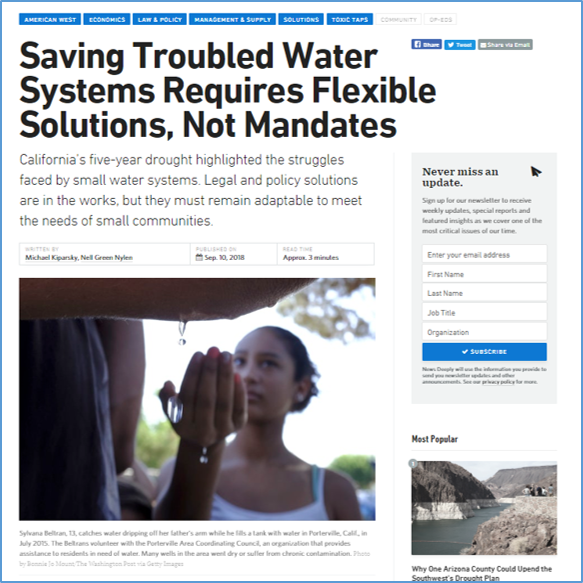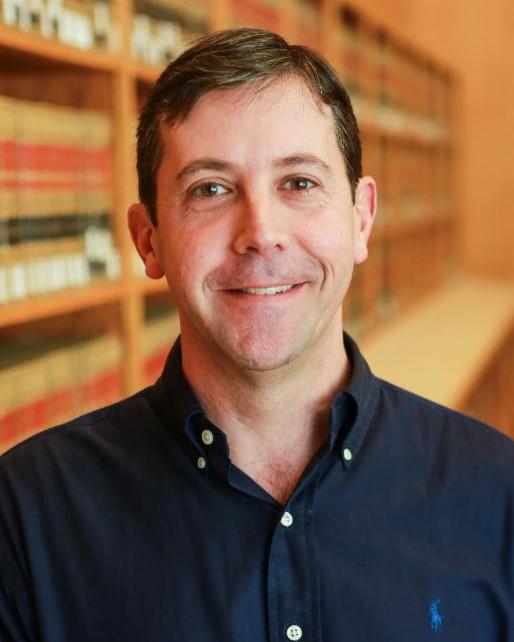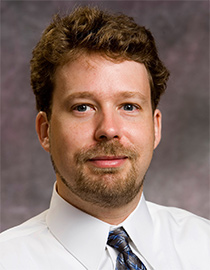| |
New Research
Assessing Risks and Opportunities for Insurance in a Changing Climate

Climate change presents a wide range of risks to California's insurance industry, as Californians across the state contend with unprecedented wildfires, changing storm patterns, increased risks of flooding and sea level rise, and disruptions to business from agriculture to fisheries and beyond. Potential decarbonization of the economy and litigation based on climate-related damages further threaten the insurance business model. The industry faces these dynamic challenges at the same time that insurance products are becoming more necessary but less available and affordable.
To tackle these issues, the California Department of Insurance (CDI), under theleadership of Commissioner Dave Jones, has spearheaded efforts to drive insurers to disclose climate risks, divest of fossil fuel-related investments, and maintain the availability and affordability of insurance in vulnerable areas.
Our new
report
, co-authored with CDI and Dr. Evan Mills of Lawrence Berkeley National Laboratory, documents the nature and extent of the risks faced by insurers and residents in California and offers a range of recommendations to protect the industry and the entire state.
Trial by Fire: Managing Climate Risks Facing Insurers in the Golden State
includes detailed discussions of CDI's landmark efforts to date; physical, transition, and liability risks; challenges to insurance affordability, adequacy, and availability; the opportunities presented by "green" insurance products; potential legislative and policy reforms; and solutions for industry, regulators, and consumers to preserve a viable insurance industry in a changing climate.
|
Op-Ed
 Today in
Water Deeply, CLEE's Nell Green Nylen and Mike Kiparsky
discuss the obstacles faced by small water systems, and vital factors that must be considered as policymakers lay the groundwork for overcoming them. A range of actions that fall under the umbrella of "water system consolidation" can increase access to safe, affordable drinking water. As state policymakers develop new policies intended to facilitate consolidation, it is imperative that they maintain flexibility to find workable local and regional solutions that address the needs of vulnerable communities. It is the best way to help California achieve a future with reliable access to clean water for all.
|
CLEE at the Global Climate Action Summit (Sept. 11-14)
This week thousands of climate experts will arrive in the Bay Area to discuss the critical steps we need to take to address climate change globally. CLEE is proud
to be taking part in two programs focused on key issues we're actively working on. We hope to see you there!
Tuesday, Sept 11, 2:00-5:00pm

How can subnational governments leverage the coming "3 Revolutions" in shared, electric, and automated transportation to meet climate goals? CLEE is co-hosting a session on this topic as an affiliate event at the Global Climate Action Summit in San Francisco this week. Transportation technologies are evolving rapidly, and the course of their evolution will determine whether greenhouse gas emissions dramatically increase or drop as a result. This event will empower states, regions, and cities with policy tools needed to harness these revolutions to reduce climate emission. It will be immediately followed by an evening reception.
Wednesday, Sept 12, 1:00-3:00pm
 CLEE will release a new report this Wednesday on policy pathways to achieve 100% zero-emission vehicle sales in California. We will present "100% Zero" with free hard copies available at the climate summit affiliate event Gas/Diesel Car Phaseouts: Global Strategy to End Gasoline Use. This free event with registration
is organized by the Sierra Club and Coltura. CLEE will release a new report this Wednesday on policy pathways to achieve 100% zero-emission vehicle sales in California. We will present "100% Zero" with free hard copies available at the climate summit affiliate event Gas/Diesel Car Phaseouts: Global Strategy to End Gasoline Use. This free event with registration
is organized by the Sierra Club and Coltura.
|
|
Faculty + Staff
In the News
|

Prof
Holly Doremus discusses water pollution flowing from Tijuana to San Diego and the extent to which this can be considered a Clean Water Act violation in the
Los Angeles Times.
|

Ethan Elkind joins
KQED Forum to discuss EPA's proposal to loosen automobile emissions standards and revoke California's waiver under the Clean Air Act.
|

Blogging in Legal Planet, Prof Eric Biber considers efforts to bolster California's environmental policies to combat the potential for federal rollback, what he calls "Trump insurance."
|
|
Support the Environmental & Energy Programs @ Berkeley Law
CLEE is dedicated to developing pragmatic policy solutions to critical environmental and energy challenges, and to supporting the education of tomorrow's leaders in this field. If you would like to support these efforts, please consider making a one-time or recurring donation through
our giving portal.
Any gift, no matter the size, is deeply appreciated. We are independently funded from the university, and we wouldn't be here today - and won't be here tomorrow - without you.
|
|
|
|
| |
|
|